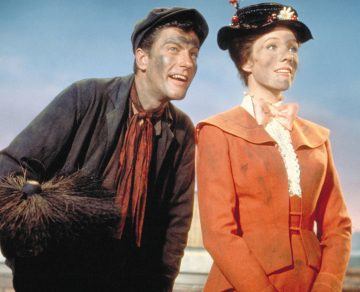Lindsay Zoladz at Bookforum:
 On screen and off, Edwards came to see something in Andrews that Kael—and other critics like her—could not. Underneath her wimple, as the nuns say of Maria, Andrews had curlers in her hair. Yes, in nearly every role she comports herself like the queen of some imaginary, borderless kingdom. But there is also an odd tension beneath the surface of Andrews’s most ostensibly wholesome performances—the kind that can drive a viewer to all sorts of wild speculation about what Mary Poppins gets up to on her days off, and that can inspire an entire volume of queer theory that hinges upon a dissident reading of the boyish Maria von Trapp (see: Stacy Wolf’s 2002 A Problem Like Maria: Gender and Sexuality in the American Musical). Pinning down the hidden complexities and contradictions of Andrews’s stardom is a bit like holding a moonbeam in your hand. As composer and broadcaster Neil Brand put it to The Guardian last year, Andrews may just be “the politest rebel in all cinema.”
On screen and off, Edwards came to see something in Andrews that Kael—and other critics like her—could not. Underneath her wimple, as the nuns say of Maria, Andrews had curlers in her hair. Yes, in nearly every role she comports herself like the queen of some imaginary, borderless kingdom. But there is also an odd tension beneath the surface of Andrews’s most ostensibly wholesome performances—the kind that can drive a viewer to all sorts of wild speculation about what Mary Poppins gets up to on her days off, and that can inspire an entire volume of queer theory that hinges upon a dissident reading of the boyish Maria von Trapp (see: Stacy Wolf’s 2002 A Problem Like Maria: Gender and Sexuality in the American Musical). Pinning down the hidden complexities and contradictions of Andrews’s stardom is a bit like holding a moonbeam in your hand. As composer and broadcaster Neil Brand put it to The Guardian last year, Andrews may just be “the politest rebel in all cinema.”
more here.
